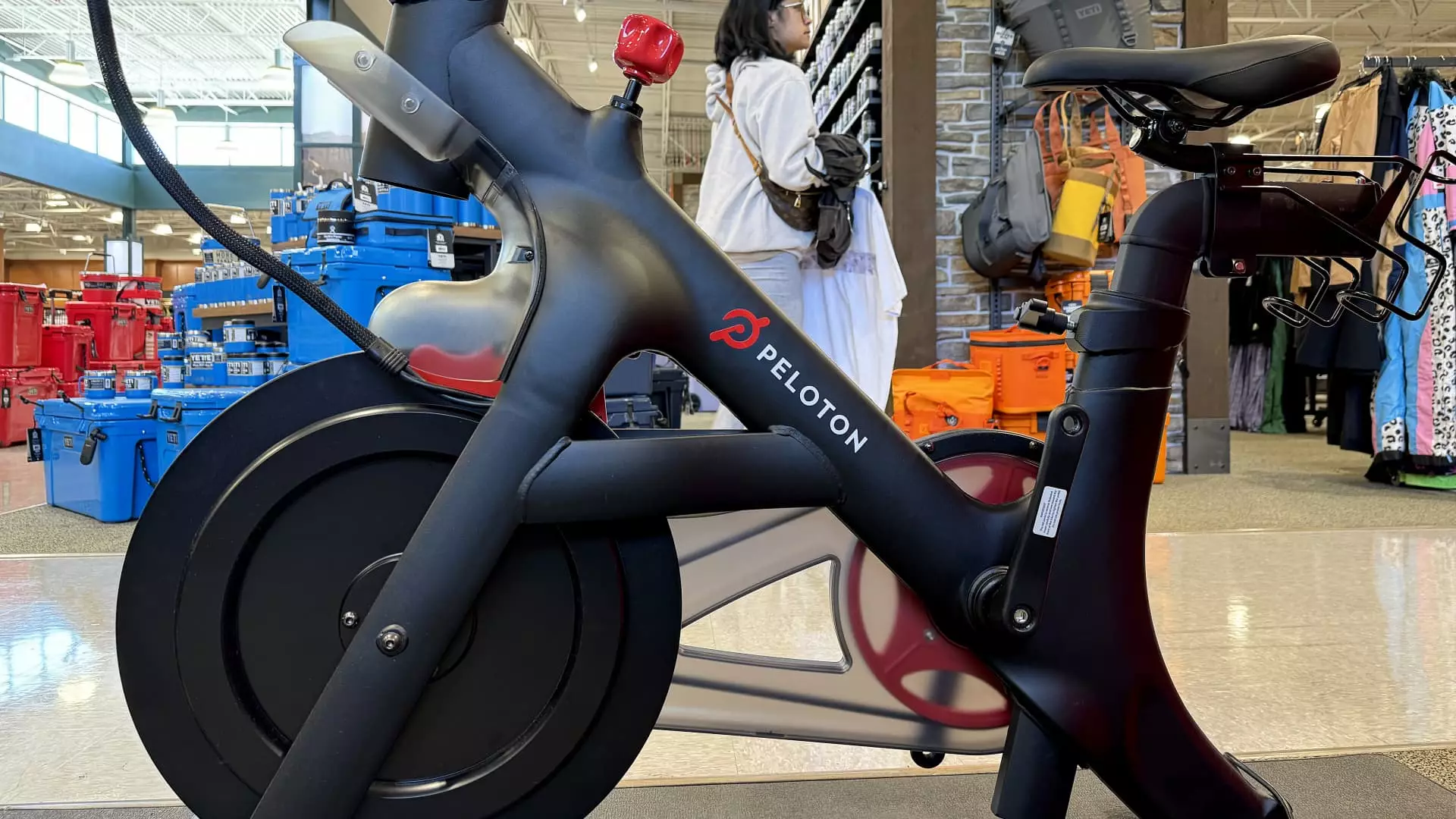In a bold and innovative step, Peloton has launched its own marketplace, aptly named Repowered, aimed at breathing new life into the multitude of unused fitness equipment cluttering homes. This new platform is not just a sales channel; it represents a transformative approach towards how fitness enthusiasts interact with their gear. Instead of relegating costly bikes and treadmills to mere decorations in living rooms, Repowered positions them as re-sellable assets, healing the environmental scars of consumerism while also catering to the financially-conscious demographic seeking quality without the hefty price tag.
The burgeoning resale market signifies a shift in consumer behavior that cannot be overlooked. As we acknowledge the increasing popularity of pre-owned electronics and goods, Peloton’s strategy boldly embraces this trend. By providing users with the tools to monetize their unused equipment through the support of a generative AI pricing tool, Peloton is not merely encouraging sales; it’s inciting a culture of responsible consumption. The platform provides a win-win situation—sellers can offload equipment they no longer use while reaping some economic benefits, and buyers can acquire high-quality equipment at a fraction of the retail cost.
Empowering Consumers Through AI
The generative AI tool integrated into Repowered is a game-changer for the resale market. This feature not only assists sellers in determining a competitive price but also personalizes the selling experience. It’s akin to having a personal sales assistant who analyzes market trends and conditions to maximize profit potential. However, there’s a lingering sense of skepticism in the effectiveness of such AI recommendations—will the algorithm genuinely produce fair pricing, or will it add yet another layer of complexity to an already convoluted market?
Despite the potential pitfalls, Peloton has taken a bold stance that could revolutionize how individuals think about ownership and valuation of fitness equipment. With a suggested payout structure where sellers retain 70% of their sales price, many are likely to find value in parting with fitness gear that has become more of a hindrance than a health asset. This model encourages homeowners to declutter, elevating their living spaces while giving a second chance for the equipment to be used productively.
Navigating Market Challenges
Peloton’s decision to enter the resale market also poses inherent challenges. They are not just competing against the likes of Facebook Marketplace but are also positioning themselves against specialized platforms like Trade My Stuff. While the company states that Repowered is distinct from established platforms, the question beckons: how can Peloton ensure that their marketplace provides enough value to lure users away from alternatives?
In a market where consumers are increasingly skeptical of brand loyalty and look for the best deals, Peloton’s ability to carve out a niche will rely heavily on their marketing ingenuity and user experience. Repowered must deliver greater trust and convenience, vital ingredients in such transactions rife with potential scams and misrepresented goods.
Moreover, the very image of Peloton as a premium brand could become a double-edged sword. With their clearly defined demographic of enthusiastic users alongside a backdrop of those whose bikes serve merely as clothes racks, the risk exists that pushback from dissatisfied former users could hamper the ambition of this new venture.
Embracing Growth Through Second Chances
The resale sector, poised for unprecedented growth, emerges as a lifeline for Peloton that intersects with their fading luster in new subscriptions. By tapping into this thriving secondary market, the company not only opens up new streams of revenue but also reconnects with a wider audience of potential members—those who have previously been discouraged by initial expenditures.
Peloton’s timing is astute. Amid an era that increasingly prioritizes sustainability and circular economic models, Repowered emerges not solely as a sales platform but a statement against the hyper-consumerism pervasive in today’s society. In a world teetering on the brink of environmental crises, encouraging a circular economy where products find renewed value through resale seems both innovative and socially responsible.
Thus, as Peloton embarks on this journey, the spotlight will remain firmly entrenched on how its actions redefine fitness consumption in a manner both profitable and sustainable. With far-reaching implications beyond mere transactions, Repowered could very well become a beacon for reimagining our approach to ownership in the fitness industry.

Leave a Reply